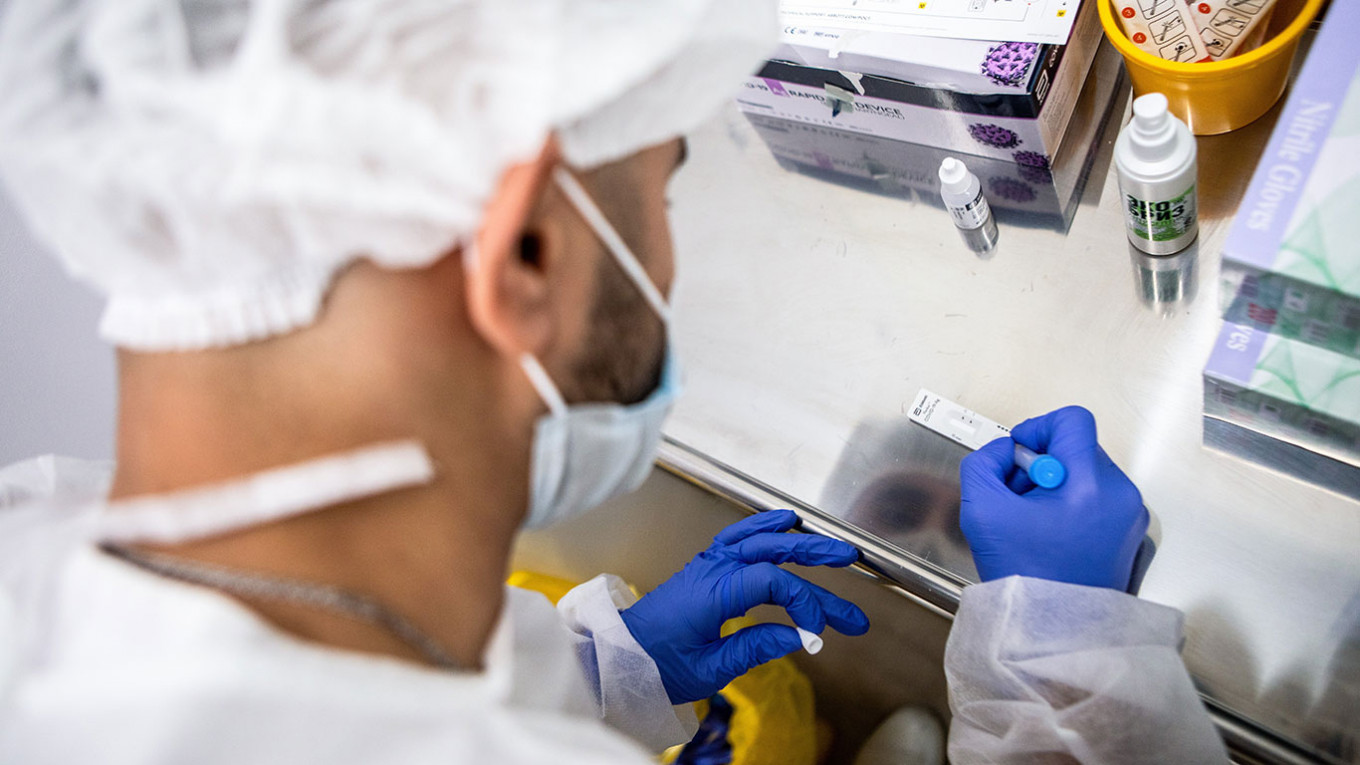Russia has detected a new sub-variant of the Delta strain of the coronavirus, which risks compounding the country’s spiraling infections and deaths, a senior Russian government scientist warned Thursday.
The AY.4.2 sub-variant is more contagious than its predecessor, according to Kamil Khafizov, who heads the state consumer protection watchdog Rospotrebnadzor’s scientific group for new methods to diagnose diseases.
“The AY.4.2 variant of the Delta strain has already been detected in isolated cases in Russia,” Interfax quoted Khafizov as saying.
“It’s fairly likely to spread widely in Russia and the world. We are seeing more cases of this sub-strain,” he added in comments to the media.
Khafizov said AY.4.2 could be as much as 10% more contagious than Delta.
Russian health officials say the Delta variant is the dominant strain of the fourth wave of the pandemic that has overwhelmed the country’s hospitals amid stubbornly low vaccination rates.
However, Khafizov did not think the pace of infection would increase radically. “This is potentially only a slightly more contagious strain,” Khafizov said, adding that the AY.4.2 sub-variant has spread “slowly” since it was first detected in July.
The scientist expressed confidence in the Russian vaccines’ effectiveness against AY.4.2 because the new strain “isn’t so different that it radically changes the ability to bind to antibodies.”
Just one in three Russians have been fully vaccinated against Covid-19 while polls show the majority of the population still reluctant to take one of the domestically-developed shots. The Kremlin has this week admitted that it had not sufficiently promoted the vaccine among Russians despite its wide availability since last year.
“The only thing that can help resist the new variant is vaccination, especially for those who have not yet had the coronavirus infection,” Khafizov said.
His comments follow the British government’s announcement that it is monitoring AY.4.2, which is seen in a growing number of the country’s cases.
The stark warning also comes as Russia gears up for a so-called “non-working” week between Oct. 30-Nov. 7 to rein in the record-setting number of deaths and infections seen over the past month.
President Vladimir Putin on Wednesday authorized regional leaders to extend these restrictions beyond Nov. 7 if the caseload does not shrink.
Moscow authorities warned businesses that the capital will go into a strict “short-term lockdown” — which would amount to Russia’s tightest restrictions since the spring of 2020 — if infections continue to rise, according to a document seen by The Moscow Times.
A Message from The Moscow Times:
Dear readers,
We are facing unprecedented challenges. Russia's Prosecutor General's Office has designated The Moscow Times as an "undesirable" organization, criminalizing our work and putting our staff at risk of prosecution. This follows our earlier unjust labeling as a "foreign agent."
These actions are direct attempts to silence independent journalism in Russia. The authorities claim our work "discredits the decisions of the Russian leadership." We see things differently: we strive to provide accurate, unbiased reporting on Russia.
We, the journalists of The Moscow Times, refuse to be silenced. But to continue our work, we need your help.
Your support, no matter how small, makes a world of difference. If you can, please support us monthly starting from just $2. It's quick to set up, and every contribution makes a significant impact.
By supporting The Moscow Times, you're defending open, independent journalism in the face of repression. Thank you for standing with us.
Remind me later.






